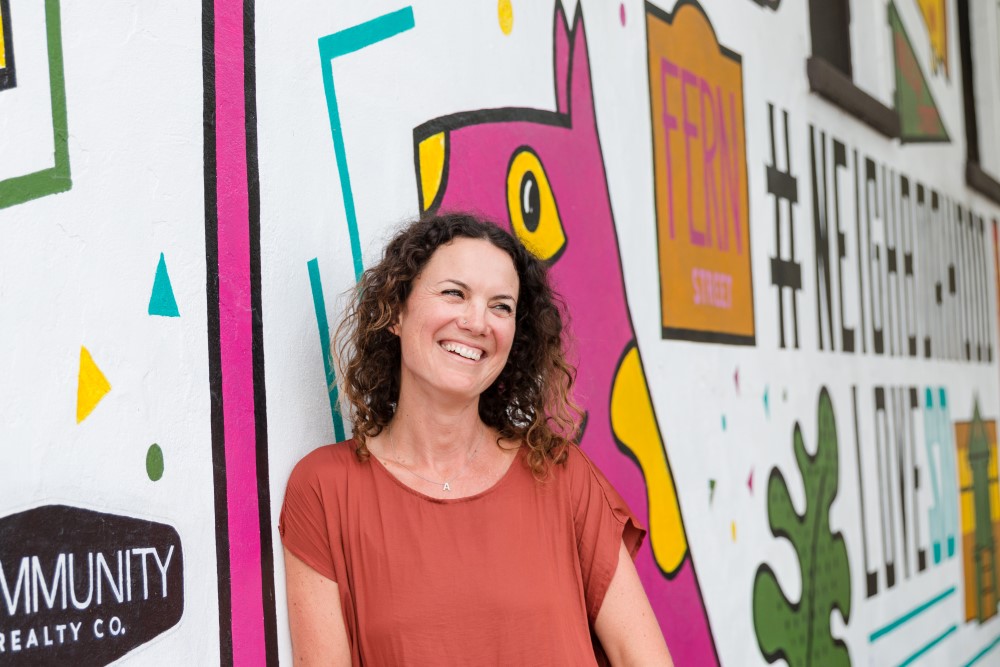|
Is motherhood what you’ve expected? If no, then welcome to the club. You are not alone! Everyone expects you to be a glowing, happy mother, but if you don’t fit in that picture then society, friends, and even family members may tell you that it’s your fault, and something is wrong with you. We all experience the struggles of motherhood differently, and every single one of those are valid. You may feel exhausted and irritable. It may feel like you’re riding an emotional rollercoaster! You may have trouble bonding with your baby. You feel lost, confused, and sad. At times, you may have scary thoughts and images about your child. You feel scared to say that sometimes it doesn’t feel so good to be a parent. After delivery we, society, friends, family, and you tend to forget about the importance of your mental health. This is something you might not think about, or don’t want to think about. I often say to my clients that Postpartum Depression and Anxiety is the “sneakiest” and most stigmatized mental illness. Sneaky because it can sneak up on you anytime in the perinatal period (during pregnancy and up to 1 year postpartum), and the guilt can show up time to time, even many years later. About 20% of women develop postpartum depression (and many of them anxiety too). Think 7 of your mom friends, one of them is struggling, maybe in silence, feeling ashamed to speak up due to fear of judgement, it might be you! What can you do to “survive” the postpartum period?! Planning and Preparation is key when it comes to making your life easier in the fourth trimester. Just like how you would create a Birth Plan, creating a Postpartum Mental Health Action Plan can help you and your support system navigate through the first couple of months. This written plan may help to prevent or reduce the emotional and mental challenges of the postpartum period. Physical Health When we talk about your mental health, we can’t leave out your physical health. Sleep deprivation is a major risk for postpartum mood disorders. Who is going to help you at night, your partner, friend, night nurse? What music helps you relax? Preparing food ahead of time is a game changer. What’s your favorite freezer meal? Ask your friends to drop off some food for you! Doordash gift cards might be a better baby shower idea than another yellow blanket. Why is exercise important? Not because of your prebaby body for sure. You just had a baby. It is normal to look and feel different in your body. Exercise is important for your mental health. Doing some stretches in front of an open window, taking a few deep breaths to slow down your mind. How about going for a light walk around the block with or without the baby? Social Health Nurturing your social life, feeling connected to your loved ones will boost your mood. It’s OK if you’re not ready for sex with your partner. Most moms feel that way 2 months (or even more) after delivery. Being intimate can also mean holding hands, have a daily 5-minute talk to reconnect, organizing lunch dates instead of date nights. You’re sleep deprived, the last thing you have is energy for going out at night. Identify a safe person you can share your thoughts and feelings with, this can be a friend or your therapist. Setting boundaries is difficult but makes ALL the difference in the postpartum period. You are entitled to decide who and when can visit and/or watch the baby. You can’t do it all alone! Asking for help doesn’t mean you’re weak, it means you want to remain strong. Be specific about your needs and accept that help is help, even if they put the diaper on backwards. Emotional and Mental health Take your time to identify your triggers! Things that provoke your anxiety or depression. Triggers can be different for everyone. It may be mess, loud noises, family members, lack of communication, too many visitors, isolation, not eating, not drinking enough water, anniversaries, bad weather, sleep deprivation, being stuck inside etc. Take your time and write down as many as you can. You also need to find the things that make you feel grounded and at peace. Your pets, your safe person, your therapist, a good cry, taking a break from the baby, doing something creative, meditation, going for a walk, nap, favorite tv show and the list goes on. By preparing for the postpartum period, you will have a better understanding of yourself, your needs and your relationships. You will know when you need help and from who. This will not only benefit you as a new mom, but also your baby and your family. Lastly, I believe that all new parents need to have a therapist. You don’t have to have a clinical diagnosis to see one. Most parents feel overwhelmed, sad, confused in this brand-new stage of their lives. Going to therapy can be a liberating experience. You’re heard, seen, and understood in a safe, non-judgmental therapeutic environment where you can express yourself freely. It is a sacred time, once a week, for an hour, just for YOU! When you become a parent, you feel like you lose a part of yourself. Being prepared and taking care of your mental health can help rediscover your new-old self in motherhood. |
AuthorI'm Eszter Kalman, and I'm not your typical psychotherapist. Sure, I've got the training and expertise, but I'm also all about bringing a dash of fun and relatability to the table. Archives
January 2024
CategoriesSign up to my newsletter |

